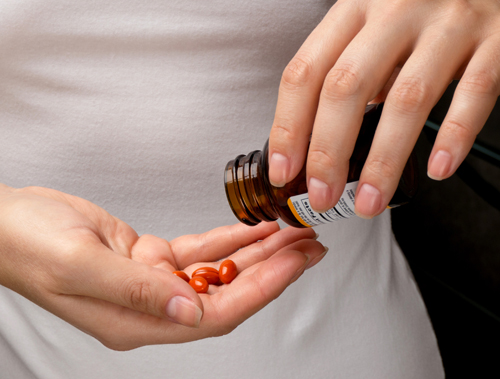Opiate and Alcohol Abuse
Deaths from opiate abuse are occurring in the US at about the same rate as automobile fatalities. At a recent talk, researcher Richard Ries discussed treatment of opiate addictions and the current epidemic of unintended opiate overdoses. Most opiates being abused come from other people’s leftover prescriptions. The best way to prevent opiate abuse is to throw out unused painkillers when they are no longer needed.
Many overdoses from opiates also involve alcohol and benzodiazepines, which can contribute to breathing difficulties.
There are several treatments available that can help patients abstain from using opiates. Treatment with opioid receptor antagonists (such as naltrexone (Rivia or long-acting Vivitrol, which is taken as an injection and lasts for 1 month), partial agonists (like buprenorphine), or full agonists (like methadone) results in, on average, an 80% decrease in the rate of hospitalization and an 80% reduction in crime, as well as a marked decrease in AIDS transmission. Without treatment, it is very difficult for people with opiate addictions to maintain abstinence, and relapse rates are extraordinarily high.
Treatment of Alcohol Abuse and Benzodiazepines
Ries also discussed data on treatment of alcohol abuse. He emphasizes that some aspects of withdrawal, such as sleep disturbance, can last a month or more after a parient’s last drink, putting the patient at high risk for relapse. Gabapentin, which is most often prescribed to prevent seizures, helps patients with this phase. Ries endorsed the combination of gabapentin and naltrexone as especially helpful. Carbamazepine is widely used in Europe for the treatment of alcohol abuse, and Ries also strongly endorsed the drug as another way of avoiding benzodiazepines. Several large placebo-controlled trials suggest that the anticonvulsant topiramate is also effective for long-term alcohol avoidance.
Editor’s Note: Another researcher, Mark Frye, found that women with bipolar disorder are more than seven times more likely than women in the general population to abuse alcohol, often in an attempt to self medicate their residual anxiety and depression. Excellent treatment of mood in bipolar disorder may have the double benefit of helping patients avoid alcohol abuse. The nutritional supplement n-acetylcysteine (NAC) also helps improve mood in bipolar disorder and has positive placebo-controlled data in heroin, cocaine, and alcohol avoidance.


